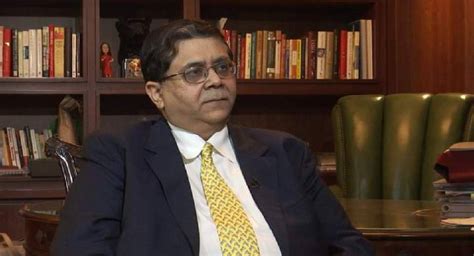A Quote by John Kenneth Galbraith
People are the common denominator of progress. So no improvement is possible with unimproved people, and advance is certain when people are liberated and educated. It would be wrong to dismiss the importance of roads, railroads, power plants, mills,and the other familiar furniture of economic development. But we are coming to realize that there is a certain sterility in economic monuments that stand alone in a sea of illiteracy. Conquest of illiteracy comes first.
Quote Topics
Advance
Alone
Certain
Coming
Common
Common Denominator
Conquest
Denominator
Development
Dismiss
Economic
Economic Development
Educated
Familiar
First
Furniture
Illiteracy
Importance
Improvement
Liberated
Mills
Monuments
Other
People
Plants
Possible
Power
Power Plant
Power Plants
Progress
Railroads
Realize
Roads
Sea
Stand
Stand Alone
Would
Would Be
Wrong
Related Quotes
Illiteracy does not impede the practice of democracy, as witnessed by the success of democracy in India despite the high illiteracy rate. One doesn't need a university diploma to realize that the ruler is oppressive and corrupt. On the other hand, to eradicate illiteracy requires that we elect a fair and efficient political regime.
For the first time ever we are capable of removing abject poverty, illiteracy and the diseases of poverty from the human condition. The current intensification of global economic integration has demonstrated that there is enough knowledge, technology and capital to bring development to all the people of the world.
The economic philosophy of black nationalism only means that our people need to be re-educated into the importance of controlling the economy of the community in which we live, which means that we won't have to constantly be involved in picketing and boycotting other people in other communities in order to get jobs.
Some people think it's a law that when productivity goes up, everybody benefits. There is no economic law that says technological progress has to benefit everybody or even most people. It's possible that productivity can go up and the economic pie gets bigger, but the majority of people don't share in that gain.
Economic progress means the discovery and application of better ways of doing things to satisfy our wants. The piping of water to a household that previously dragged it from a well, the growing of two blades of grass where one grew before, the development of a power loom that enables one man to weave ten times as much as he could before, the use of steam power and electric power instead of horse or human power - all these things clearly represent economic progress.
We have the opportunity now to look at the two billion people in the world who suffer from the most abject poverty, hunger, disease, and devastation. Add to that another two billion people who are just plain poor. If you look into the world of those caught in economic oppression, illiteracy, disease, and sexism, then you'll understand more clearly what we have to do.
Radicals, on the other hand, want to advance from the jungle of laissez-faire capitalism to a world worthy of the name of human civilization. They hope for a future where the means of economic production will be owned by all of the people instead of just a comparative handful. They feel that this minority control of production facilities is injurious to the large masses of people not only because of economic monopolies but because the political power inherent in this form of centralized economy does not augur for an ever expanding democratic way of life.
In India you would find people who belong to the 10 richest people in the entire world, and you would find people whose poverty levels are sub-Saharan in fact practically: people who would probably make less than a dollar a day or would only have enough for one meal. Now, to have these kinds of contrasts coexist, is something which boggles my mind. We have a country that is making great economic progress, a country that is making his presence felt all over the world, but at the same time, it is unable to deal with some of these fundamental contradictions in our economic evolution.



































